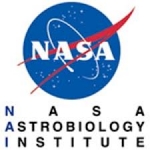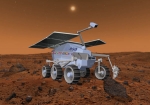Displaying items by tag: life
Future of Life Institute
The Future of Life Institute (FLI) is a volunteer-run research and outreach organization in the Boston area that works to mitigate existential risks facing humanity, particularly the risks from artificial intelligence (AI).
The institute was founded in March 2014. FLI operates grassroots-style to recruit volunteers and younger scholars from the local community in the Boston area.
The FLI mission is to catalyze and support research and initiatives for safeguarding life and developing optimistic visions of the future, including positive ways for humanity to steer its own course considering new technologies and challenges FLI is particularly focused on the potential risks to humanity from the development of human-level artificial intelligence.
It was founded by MIT cosmologist Max Tegmark and Skype co-founder Jaan Tallinn among others, and includes cosmologist Stephen Hawking and entrepreneur Elon Musk among others on the board of advisers.
NASA Astrobiology Institute
The NASA Astrobiology Institute (NAI) is an innovative way to develop the field of astrobiology and provide a scientific framework for flight missions.
NAI is a virtual, distributed organization of competitively-selected teams that integrate astrobiology research and training programs in concert with the national and international science communities.
It was setup by NASA in 1998.
Astrobiology is the study of the origins, evolution, distribution, and future of life in the universe. This interdisciplinary field requires a comprehensive, integrated understanding of biological, planetary, and cosmic phenomena. Astrobiology encompasses the search for habitable environments in our Solar System and on planets around other stars; the search for evidence of prebiotic chemistry or life on Solar System bodies such as Mars, Jupiter's moon Europa, and Saturn's moon Titan; and research into the origin, early evolution, and diversity of life on Earth. Astrobiologists address three fundamental questions: How does life begin and evolve? Is there life elsewhere in the universe? What is the future of life on Earth and beyond?
NAI's mission is to:
- carrying out, supporting and catalyzing collaborative, interdisciplinary research;
- training the next generation of astrobiology researchers;
- providing scientific and technical leadership on astrobiology investigations for current and future space missions;
- exploring new approaches using modern information technology to conduct interdisciplinary and collaborative research amongst widely-distributed investigators;
- supporting outreach by providing scientific content for K-12 education programs, teaching undergraduate classes, and communicating directly with the public
Centro de Astrobiologia - CSIC
The Centro de Astrobiologia is a research center: Looking for answer to questions about life and its origin come from the combined efforts of many disciplines.
Dissemination of scientific knowledge to the public to create a more educated society.
SETI Institute
The mission of the SETI Institute is to explore, understand and explain the origin, nature and prevalence of life in the universe. The acronym SETI means Search for ExtraTerrestrial Intelligence.
The SETI Institute is a private, nonprofit organization dedicated to scientific research, education and public outreach.
The Institute comprises three centers, the Center for SETI Research, the Carl Sagan Center for the Study of Life in the Universe and the Center for Education and Public Outreach. It was founded in 1984.
ExoMars
ExoMars (Exobiology on Mars) is a planned Mars mission to search for possible biosignatures of Martian life, past or present. This astrobiological mission is currently (September 2012) under development by the European Space Agency (ESA) with likely collaboration by the Russian Federal Space Agency (Roscosmos).
The program includes several spacecraft elements to be sent to Mars on two launches. An orbiter and a stationary lander is planned for 2016, and a Russian lander to deliver the rover is planned for 2018.





